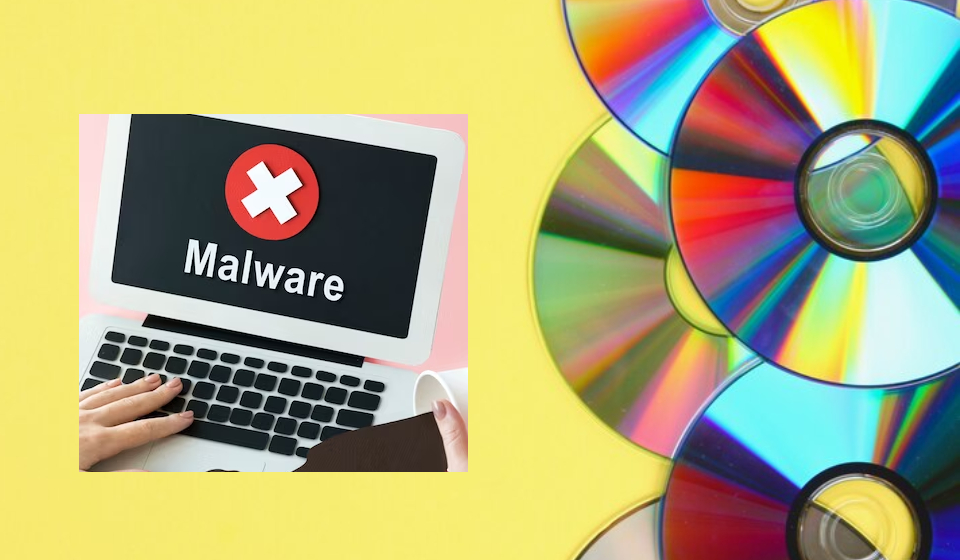10 Tips for Keeping Your DVDs Safe from Malware and Trojans

DVDs have been a popular storage medium for movies, software, games, and other types of digital content. However, as with any digital storage device, DVDs are vulnerable to malware and trojans, which can damage or corrupt the data stored on them.
So first, you should simply understand why it’s important to keep DVDs data secure from trojans:
- Trojans can damage or corrupt data on DVDs, rendering them unusable.
- Malicious software on DVDs can infect your computer and steal sensitive information.
- DVDs can be used to spread malware to other computers, making it important to keep them secure.
- Corrupted data on DVDs can cause errors or crashes when attempting to access the content.
- Protecting DVDs from trojans is crucial for maintaining the integrity and security of your digital content.
Now it’s time to learn some tips for keeping your DVDs safe from malware and trojans.
1. Use reliable anti-virus software
The first line of defense against malware and trojans is anti-virus software. Make sure you have a reliable anti-virus software installed on your computer and keep it updated regularly. This will help detect and remove any malicious software that may be on your DVDs or on your computer.
2. Scan DVDs before accessing them
Before accessing any DVD, you should always scan it with your anti-virus software. This is particularly important if you are not sure of the source of the DVD or if it has been previously used by someone else. Scanning the DVD before accessing it will help identify any potential threats and allow you to take appropriate action.
3. Keep your software updated
DVDs often come with software that is needed to access the content on them. This software can also be vulnerable to malware and trojans. Make sure you keep the software on your computer up-to-date, including the software that came with the DVDs. This will help prevent any known vulnerabilities from being exploited by malicious software.
4. Be cautious of free DVDs
Be cautious of free DVDs that are given away at events or that arrive unsolicited in the mail. These DVDs may contain malware or trojans, and could be part of a phishing scheme to gain access to your computer. If you are unsure of the source of a DVD, do not access it.
5. Store DVDs in a safe place
Storing your DVDs in a safe place can also help protect them from malware and trojans. Keep them away from areas where they can be exposed to extreme temperatures or humidity. Additionally, keep them away from areas where they can be scratched or damaged, as this can also cause data corruption.
6. Avoid sharing DVDs
Sharing DVDs with others can increase the risk of exposure to malware and trojans. When you share a DVD, you may not know what types of software or files are being transferred to your computer. If you need to share a DVD, make sure you trust the person you are sharing it with and that their computer is secure.
7. Use a separate computer for risky DVDs
If you frequently work with DVDs from unknown or untrusted sources, consider using a separate computer specifically for this purpose. This way, any malware or trojans that may be present on the DVD will not infect your primary computer. This is particularly important for businesses that handle sensitive data.
8. Keep backups of important DVDs
In case a DVD becomes damaged or corrupted, it’s important to keep backups of important data. This will help ensure that you can still access the data even if the original DVD is no longer usable. Make sure to store backups in a separate location from the original DVDs, and scan them with anti-virus software before accessing.
9. Use a DVD-ripping program
If you frequently use DVDs for content consumption, you may want to consider using a DVD-ripping program to create digital backups of the content. This way, you can still access the content without having to use the physical DVD, which reduces the risk of exposure to malware and trojans.
10. Stay informed about new threats
Finally, it’s important to stay informed about new threats and vulnerabilities that may affect DVDs. Make sure to keep up-to-date with the latest security news and updates, and adjust your security practices accordingly. This will help ensure that you are taking the necessary steps to keep your DVDs and your computer safe from malware and trojans.
Keeping DVDs safe from malware and trojans requires a combination of preventive measures. By using reliable anti-virus software, scanning DVDs before accessing them, keeping software updated, being cautious of free DVDs, and storing DVDs in a safe place, you can help protect your digital content and ensure that it remains accessible and secure.






